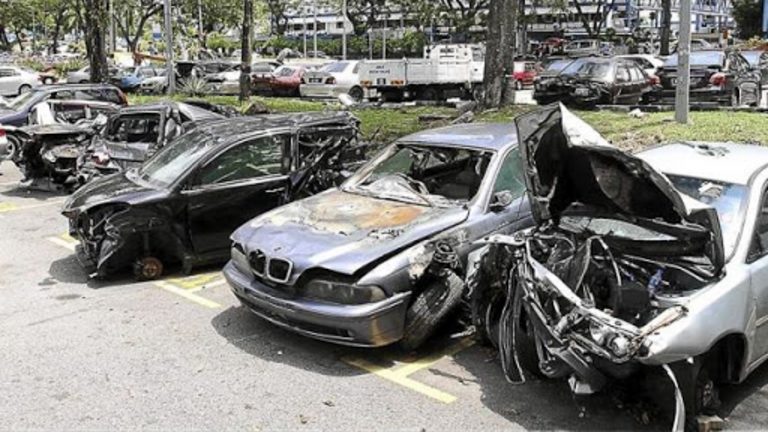As part of the 12th Malaysia Plan (12MP), which very much centred around environmental-friendliness and sustainable green technologies for the automotive sector, the government has also announced that it will be revisiting the idea of a vehicle end-of-life (ELV) policy for old cars in Malaysia.
Not much info has been revealed as part of the announcement, aside from a single line in chapter eight of the document, which reads: “A study to identify mechanisms in phasing out old vehicles in a sustainable manner will also be undertaken.”
This is not the first time that the government has toyed with the idea of an ELV policy; the first revision of the National Automotive Policy already mooted the idea way back in 2009, and over the years, various government departments and agencies have repeatedly called for the introduction of an ELV policy.
The Malaysian Automotive Association (MAA) said in 2016 that such a scheme will be critical in ensuring the growth of the automotive industry in Malaysia, and in 2018, former transport minister Anthony Loke also said that his ministry was looking to reintroduce its “cash-for-clunkers” programme, a cash rebate system to reduce the number of old cars on the road.
Recently in March, Malaysian Institute of Road Safety Research (MIROS) in conjunction with the ASEAN New Car Assessment Programme (ASEAN NCAP) also launched a survey to gauge the public’s opinion on vehicle scrapping.
However, unlike previous suggestions that mostly factored the vehicle’s safety performance and road-worthiness in their discussion, the new study will most likely focus on environmental reasons to tie in with the government’s 2050 carbon-neutrality goal, as it was included in chapter eight of the 12MP document titled Advancing Green Growth for Sustainability and Resilience.
Many countries in the world have already implemented a similar scheme, where in order to keep their older vehicles on the road, the cars will need to be tested annually for roadworthiness, and sometimes even incurring an accompanying penalty cost to offset the environmental damages. This year, India has also introduced a new Vehicle Scrappage Policy, where the car owner will be given a discount on the purchase of a new car after their old, “expired” vehicle is scrapped.
But as usual, the Malaysian public did not respond positively to the suggestion by Prime Minister Datuk Seri Ismail Sabri Yaakob yesterday, with many online citing the high cost of vehicles, alongside sub-par public transportation systems as reasons that such a scheme will not work in Malaysia.
Despite the merits of keeping old cars off the roads, the people’s complaints are also valid factors to consider if the government wants to implement an ELV policy for old cars. Do you think it’s still too early for Malaysia to adopt a vehicle end-of-life scheme? Let us know in the comments below!








